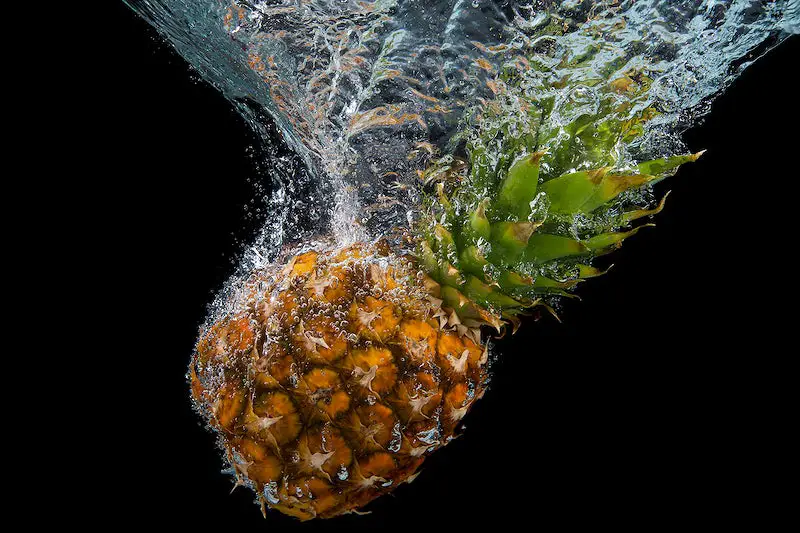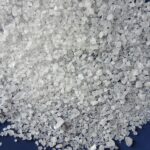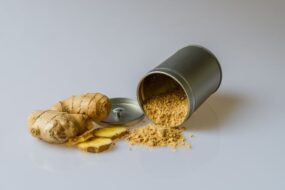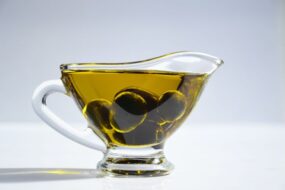
Pineapple water is a refreshing and healthy beverage that can help support weight loss and boost overall health. This delicious drink is made simply by infusing water with fresh pineapple chunks and has a sweet and tangy flavor that will tantalize your taste buds.
This article shows how to make pineapple water for weight gain and loss and explores its many health benefits and potential side effects. We’ll also share some tips for incorporating pineapple water into your diet and answer commonly asked questions about this tasty and healthy drink.
Table of Contents (click to expand)
Why Should You Drink Pineapple Water?
Pineapple water is a refreshing and nutrient-dense beverage that provides various health benefits. It’s an infusion of fresh pineapple in water, harnessing the nutritional goodness of pineapple while also keeping you hydrated. This tropical drink can be a great addition to a balanced diet, not only for its delightful taste but also for its numerous health perks.
Related: How to Start A Weight Loss Journey: Your Comprehensive Guide
Essential Vitamins and Minerals
Pineapple is a powerhouse of essential vitamins and minerals. It’s packed with vitamin C, a nutrient well-known for its immune-boosting properties and role in collagen synthesis, promoting healthy skin. In addition, the vitamin B6 content of pineapple supports brain health and stimulates the production of neurotransmitters. Pineapple also offers a good dose of potassium, a mineral essential for maintaining proper heart and muscle function.
High in Fiber and Digestive Enzymes
Beyond these vitamins and minerals, pineapple is high in dietary fiber, which aids in digestion and can help control your blood pressure and sugar levels. It also helps you feel full longer, potentially aiding weight management. Pineapple also contains bromelain, an enzyme that can break down proteins, facilitating digestion and absorption.
Antioxidant and Anti-Inflammatory Properties
The benefits of pineapple water don’t stop at nutrition. Pineapple is rich in antioxidants, substances that help fight free radicals in the body. Over time, an excess of these harmful substances can lead to chronic diseases like heart disease, diabetes, and cancer. The antioxidants in pineapple, particularly vitamin C and other compounds like bromelain, can help neutralize these free radicals.
Additionally, bromelain has been shown to have powerful anti-inflammatory properties. Regularly consuming pineapple water could help reduce inflammation and alleviate symptoms of conditions like arthritis or inflammatory bowel disease.
Hydration and Weight Management
Pineapple water is also a fantastic way to stay hydrated. Hydration is essential for virtually all bodily functions, including metabolism and waste removal. Furthermore, replacing sugary beverages like soda with pineapple water can aid in weight management. It’s a low-calorie, satisfying drink that can curb cravings for sugary drinks and contribute to a calorie deficit, an essential factor for weight loss.
How to Choose the Best Pineapple for Making Pineapple Water
Creating refreshing and flavorful pineapple water starts with choosing the best pineapple. To ensure your beverage is sweet and nourishing, you’ll need to know how to pick a ripe and fresh pineapple. Here are some expert tips to guide you on your pineapple selection journey.
Related: How to Use Pineapple for Weight Loss
Look for the Golden Hue
The color of a pineapple can tell a lot about its ripeness. Look for pineapples that have a golden-yellow color. While a little green is acceptable, too much green might indicate that the pineapple is not ripe enough. A nice golden color, especially at the base, often signals a pineapple that’s ripe and ready to eat.
Check the Aroma
Give the pineapple a sniff. A ripe pineapple will emit a sweet, tropical aroma, particularly at the base. If the pineapple smells of nothing, it may not be ripe yet. On the other hand, if the scent is too strong, vinegary, or fermented, the pineapple may be overripe.
Assess the Leaves
Check out the crown of the pineapple – the bunch of leaves at the top. They should be fresh-looking and vibrant green. While a few brown leaves are normal, a large amount could suggest that the pineapple is past its prime. You can also try tugging a leaf from the center of the crown. If it comes out easily, this often signals that the pineapple is ripe.
Check for Bruises and Soft Spots
Inspect the pineapple’s skin for any signs of damage, such as soft spots, mold, or bruises. These could indicate that the pineapple is overripe, damaged, or beginning to rot. The skin should be firm to the touch, with a slight give when pressed.
Heft the Pineapple
Pick up the pineapple and feel its weight. It should feel heavy for its size, which suggests it’s full of juice and, therefore, ripe. On the other hand, a light pineapple might not be mature enough and could lack juiciness and flavor.
After choosing your perfect pineapple with these tips, you’ll be ready to create incredibly refreshing and delicious water. Enjoy this hydrating and nutrient-dense beverage as a healthy addition to your daily hydration routine.
Related: How to Make Lime Water for Weight Loss
Step-by-Step Guide: How to Make Pineapple Water
Pineapple water is a refreshing, hydrating, and flavorful drink that is simple to prepare at home. Not only does pineapple detox water offer the delightful sweetness of pineapple, but it also brings a wealth of health benefits. This step-by-step guide will show you how to make your own pineapple water with a refreshing hint of mint and citrus.
Gather Your Ingredients
Before you start, ensure you have all the necessary ingredients at hand:
- 1/2 of a fresh pineapple, chopped into small pieces
- 4 cups of water
- A few sprigs of fresh mint leaves
- 1 teaspoon of lemon or lime juice
- Ice cubes for serving
Step 1: Combine the Ingredients
First, grab a large pitcher and add your chopped pineapple. The pineapple chunks will infuse the water with flavor and natural sweetness. Next, add the fresh mint leaves. The mint adds a refreshing touch fruit infused water that balances out the sweetness of the pineapple.
Now, squeeze in the some lemon juice or lime juice. This not only adds a tangy kick to your pineapple water but also provides a vitamin C dose.
Finally, pour in the water. Use cold water for the best results, as it helps to extract the flavors from the pineapple and mint more effectively.
Step 2: Infuse the Flavors
Once all your ingredients are in the pitcher, give everything a good stir to combine. Now, it’s time to let the flavors meld together. Cover the pitcher and place it in the refrigerator for at least 2 hours. The longer you let it infuse, the stronger the flavor will be.
Step 3: Strain the Pineapple Water
After the pineapple water has been infused for several hours, it’s time to strain it. This will remove the solids from detox water and leave you with clear, flavored water. Use a fine mesh strainer over a large bowl or another pitcher to strain the pineapple water.
Step 4: Serve and Enjoy
Pour the pineapple water into a glass filled with ice cubes for a refreshing drink. The ice keeps the pineapple drink relaxed and slightly dilutes the flavors for a perfectly balanced beverage.
Enjoy this hydrating, flavorful, nutrient-dense pineapple water as a healthy alternative to sugary beverages. It’s a delightful way to stay refreshed and reap the benefits of pineapple.
Pineapple Juice vs. Pineapple Water: Which Is Better for Weight Loss?
If you’re considering incorporating pineapple into your diet to support weight loss, you likely have a decision to make: pineapple juice or pineapple water. Both can assist in weight loss and overall health but have key differences to be aware of.
Related: How to Drink Kombucha for Weight Loss
Pineapple Juice
Pineapple juice, created by extracting the juice from fresh pineapple, is a concentrated form of the fruit. As a result, it is a nutrient-dense beverage with vitamins, minerals, and enzymes like bromelain. Drinking pineapple juice may be a good option if you’re looking for a quick and easy way to get a nutritional boost. It provides an intense flavor and a wealth of nutrients.
However, it’s essential to consider the sugar content. Pineapple juice, especially pre-made versions from the store, can contain high amounts of natural and even added sugars. While these sugars can make the juice taste more appealing, they increase the calorie content, hindering weight loss efforts if not consumed in moderation. This is particularly true for canned pineapple juice, which is often high in added sugars and calories. As such, if you opt for fresh pineapple juice only, it’s best to seek out versions with no added sugars and consider it as part of your daily caloric intake.
Pineapple Water
In contrast, pineapple water infuses water with fresh pineapple chunks. This leads to a beverage subtler in flavor and lower in calories and sugar, a clear advantage for those seeking weight loss. In addition, pineapple-infused water typically contains no added sugars, making it a healthier alternative to sugary beverages and a beneficial component of weight loss efforts.
Although pineapple water doesn’t contain as many nutrients or vitamins as pineapple juice due to the infusion process, it still imparts some beneficial compounds from pineapple. Additionally, with the pineapple diet being lower in sugar, it’s less likely to lead to spikes and crashes that can trigger feelings of hunger.
The Takeaway
Both pineapple juice and water can benefit weight loss and overall health, each serving different purposes. Pineapple juice offers a nutrient-dense, flavorful option, provided you’re mindful of the potential sugar content. Pineapple water, on the other hand, is a low-calorie, refreshing alternative that aids hydration and weight management.
How to Incorporate Pineapple Water into Your Diet for Weight Loss
Drinking pineapple water is a great way to add flavor and nutrition to your diet. Here are some tips for incorporating pineapple water into your daily routine:
- Drink a glass of pineapple water before meals to help reduce appetite and lose weight.
- Add pineapple water to your workout routine to help boost your energy levels and improve your performance.
- Add other fresh fruits like lemon slices or ginger to your pineapple water for added flavor and health benefits.
- Replace sugary drinks like soda and fruit juice with refreshing drinks like pineapple water to reduce sugar intake and promote weight loss.
Frequently Asked Questions About Pineapple Water and Weight Loss
Here are some common questions and answers about drinking pineapple water for weight and burns fat loss:
How much pineapple water should I drink per day?
The quantity of pineapple water you should drink daily isn’t set in stone, as it depends on factors like your overall diet, health status, and hydration needs. However, the key is moderation. Considering that an average adult should consume about 2 liters (roughly 8 cups) of water daily, you could replace one or two cups with pineapple water for a flavorful twist. Remember, while pineapple water is hydrating and carries the benefits of pineapple, it should not be the only source of hydration.
Can drinking pineapple water help me lose weight?
Pineapple water can support weight loss as part of a balanced diet and active lifestyle. Pineapple contains an enzyme called bromelain, which can aid digestion and reduce bloating. Plus, pineapple is relatively low in calories and fiber, which may help you feel full and curb overeating. However, pineapple water alone won’t lead to weight loss. It needs to be complemented by a nutrient-rich diet and regular physical activity.
Can I use canned pineapple instead of fresh pineapple chunks?
While fresh pineapple is always the best option due to its higher nutrient content, you can use canned pineapple if new isn’t available. However, choose canned pineapple packed in its juice, not syrup, to avoid excess sugar. Also, the canning process can cause nutrient loss, so fresh pineapple is more nutritious.
Does pineapple water help you lose weight?
As mentioned, pineapple water can assist in weight loss as part of a balanced diet and regular exercise regimen. In addition, the bromelain enzyme in pineapple aids digestion and helps reduce inflammation and bloating. The hydration provided by the water and the fiber saturated fat content in pineapple may also contribute to a feeling of fullness, potentially decreasing overall calorie intake.
Is it safe to drink pineapple water every day?
Generally, it’s safe to drink pineapple water daily as long as you consume it as part of a varied diet and don’t rely on it as your only source of hydration. Pineapple is rich in vitamins and minerals and can be a healthy addition to your diet. However, due to its acidity, excessive consumption consuming pineapple may cause heartburn or gastroesophageal reflux in some individuals. It’s always best to consult with a healthcare provider if you have any existing health conditions or concerns.
Can I boil pineapple for weight loss?
Boiling pineapple won’t directly lead to weight loss, but it can be part of a healthy weight-loss diet. For example, cooking or simmering pineapple in water and then drinking the pineapple-infused water afterward (after it has cooled) can give you a flavored beverage that’s hydrating and contains some nutrients from the pineapple. Remember that weight loss involves a combination of balanced eating, regular physical activity, and healthy lifestyle habits. Including pineapple or pineapple water can be part of this, but it isn’t a stand-alone solution.
Precautions and Side Effects of Drinking Pineapple Water
While drinking pineapple water can be safe and healthy for most people, there are some precautions and potential side effects to keep in mind:
- Some people may be allergic to pineapple or other tropical fruits. If you experience any symptoms of an allergic reaction like hives, swelling, or difficulty breathing, stop drinking pineapple water immediately and seek medical attention.
- Pineapple contains bromelain, an enzyme that can cause some people mouth irritation or skin rashes. If you experience discomfort or irritation after drinking pineapple water, speak with your healthcare provider.
- Drinking too much pineapple water can cause upset stomach, diarrhea, or other digestive issues. Start with a small amount and gradually increase your intake over time.
Related: How to Use Meal Replacement Shakes for Weight Loss
Conclusion
In conclusion, drinking pineapple water is a delicious and healthy way to lose weight and improve your overall health. Whether you prefer fresh pineapple chunks or canned pineapple juice, there are many ways to infuse your water with pineapple infused with the sweet and tangy flavor of this delicious fruit.
You can enjoy all the benefits of this refreshing drink by using the pineapple water recipe following our step-by-step guide for making and incorporating it into your diet. So why not try it today and see how it can help you reach your weight loss goals?





































